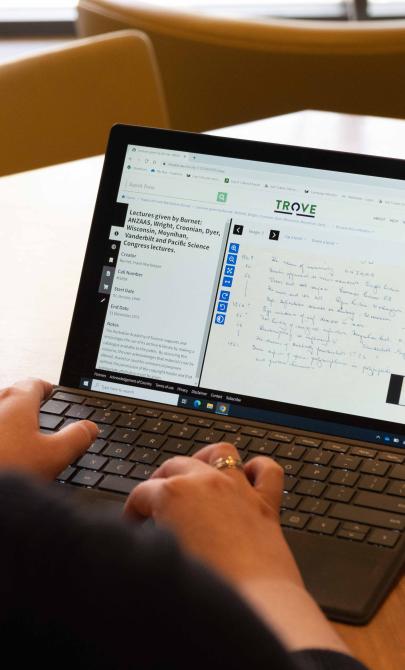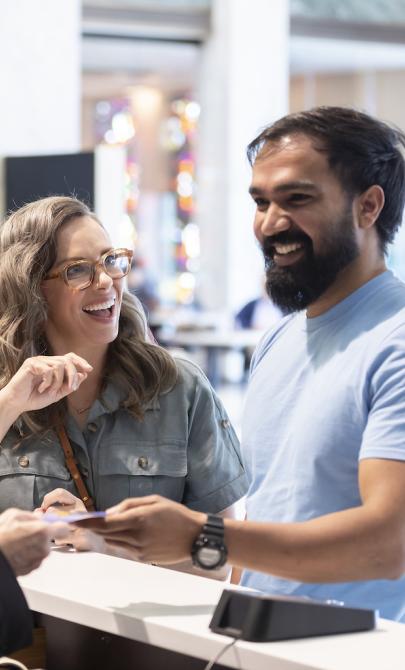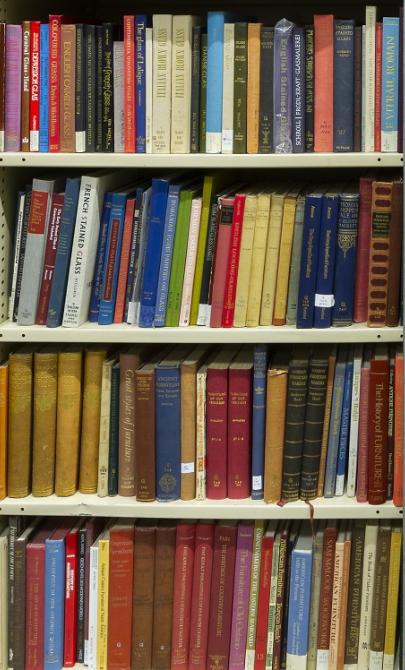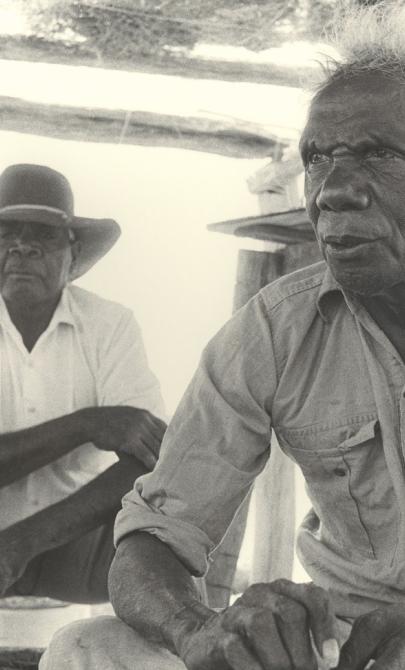Stolen Generations resources
About this page
Since colonisation, thousands of First Nations children were forcibly removed from their families by governments, churches, and welfare organisations. Many were placed in institutions or adopted by non-Indigenous families. These children are known as the Stolen Generations.
Today, many institutions across Australia are working together to assist those affected to reconnect with their families, communities, and culture. The Library has a Memorandum of Understanding (MoU) with the Australian Institute of Aboriginal and Torres Strait Islander Studies (AIATSIS). Through this partnership, we facilitate access to materials that assist in tracing family histories and reconnecting with heritage.
If you need support, please reach out to us or contact a Link-Up organisation in your state or territory. Link-Up services provide professional, culturally sensitive and confidential research, as well as social and emotional support services to members of the Stolen Generations and their descendants.
What you can find in the Library
Books and reports
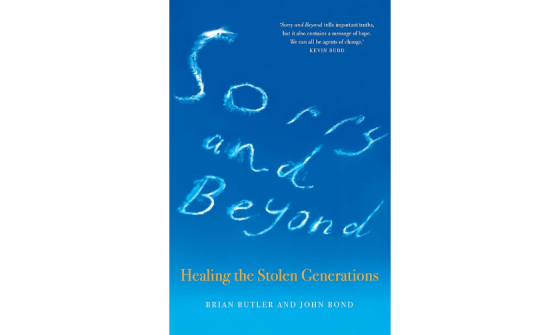
Brian Butler & John Bond, Sorry and beyond : healing the stolen generations, 2021, nla.gov.au/nla.cat-vn8565133
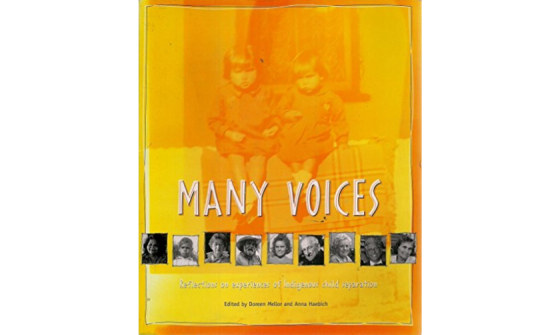
Doreen Mellor & Anna Haebich, Many voices : reflections on experiences of Indigenous child separation, 2002, nla.gov.au/nla.cat-vn683484
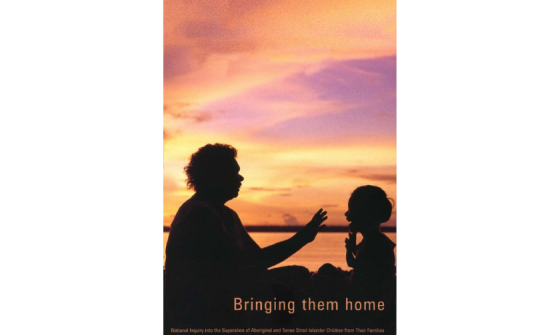
Australian Human Rights Commission, Bringing them home : the "Stolen children" report (1997), nla.gov.au/nla.cat-vn6230268
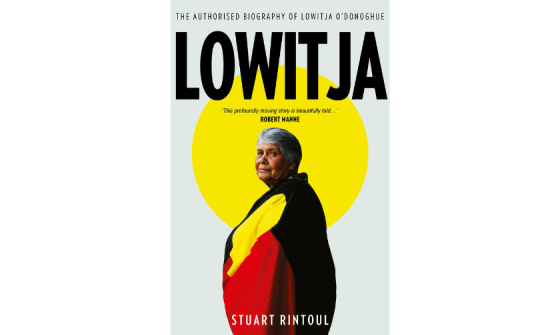
Stuart Rintoul, Lowitja : the authorised biography of Lowitja O'Donoghue, 2021, nla.gov.au/nla.cat-vn8613439
Oral histories
Our Bringing Them Home oral history project delivered a collection of interviews with individuals involved with or affected by the Australian Government’s child removal policies and practices.
Between 1998 and 2002, people from all over Australia told us their stories as part of this project. Forty-one interviewers recorded 340 interviews with families and children who had experienced separation, as well as with those who cared for them, worked in institutions, and were involved with administration, policy and implementation in a professional capacity.
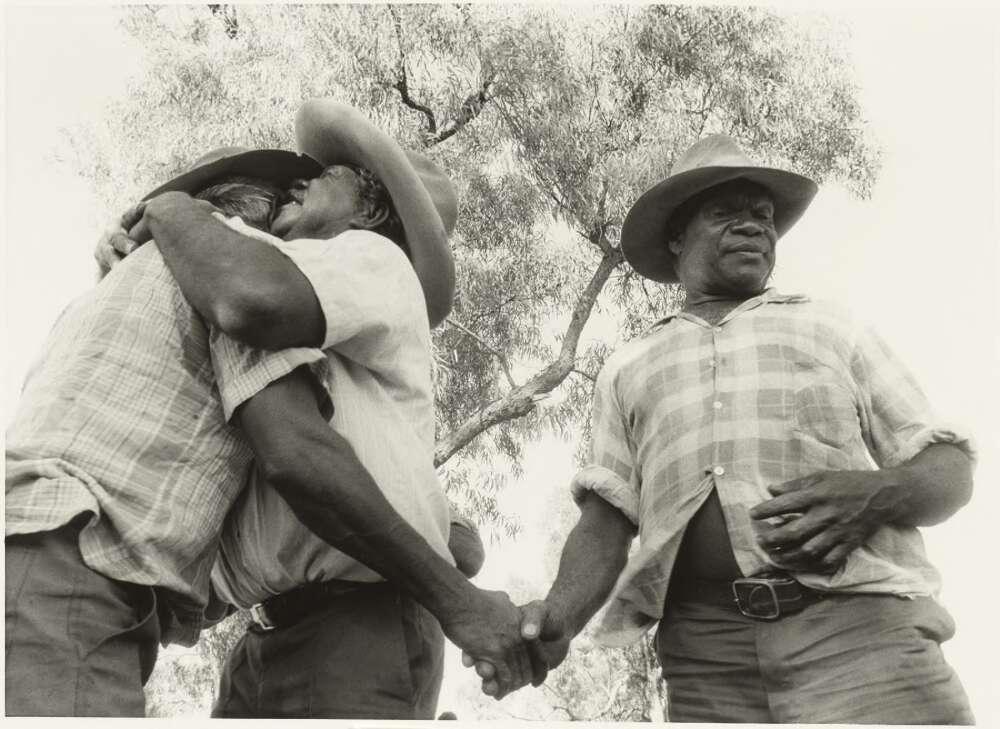
Juno Gemes, Countrymen, elders from Arakun and Mornington Island greeting each other before a ceremony, Mornington Island, Queensland, 1978, nla.gov.au/nla.obj-147616168
Juno Gemes, Countrymen, elders from Arakun and Mornington Island greeting each other before a ceremony, Mornington Island, Queensland, 1978, nla.gov.au/nla.obj-147616168
Where Bringing Them Home oral history project speakers have given permission, recordings and transcripts are available online through Trove and the Library catalogue. Sometimes you will need to get permission to listen, read, or get copies, but this is detailed in the records.
Listen to the recordings through Trove
Listen to the recordings through the catalogue
In some cases, you can order copies through the Library catalogue .
You can listen to some of the recordings that are not available online in the Special Collections Reading Room.
How to search and find items
Search the catalogue
Search family and location names and the names of orphanages, missions and reserves in our catalogue.
Learn more about how to use the catalogue
Keyword search
Use a quick keyword search in the catalogue using the places, family names or people your family is connected to.
For example:
If you get too many results, you can:
- add title, author, subject or AIATSIS subject limits on your search, or
- click into the catalogue full results and use the Limit Your Results options (at the right of the search results page) to display only the items of interest, for example, manuscripts or oral histories.
If you need to widen your search, try searching subject headings. You can search by subject directly in the catalogue (selecting subject in the drop down), or by opening an item’s catalogue record and clicking on the subject headings to find other material related to that subject.
Author search
You can also search by author where a group or governing body has published the material.
For example:
- South Australian Museum. Aboriginal Family History Project
- Stolen Generations Survivors Group
- National Inquiry into the Separation of Aboriginal and Torres Strait Islander Children from their Families (Australia)
Where else to look
You can continue your family history research by using these resources outside the Library.
Link-Up
Family tracing and reunion services are available to members of the Stolen Generations throughout Australia via the AIATSIS-run national Link-Up program.
Link-Up gives priority to first generation members of the Stolen Generations who have directly experienced removal or separation from family and community, especially those who are elderly or have urgent health concerns. It also provides services to subsequent generations and communities of Stolen Generations.
To Remove and Protect
The Australian Institute of Aboriginal and Torres Strait Islander Studies (AIATSIS) online exhibition, To Remove and Protect, includes state and territory legislation identified in the Bringing Them Home report that enabled the forced removal of First Nations children, and the annual reports of state and territory ‘protection’ boards and subsequent government agencies.
The Apology
The Apology to Australia’s Indigenous Peoples speech made by Prime Minister Kevin Rudd on 13 February 2008 can be found online via the Parliament of Australia website.
Goodna Girls
In an event at the Library, ANU Lecturer and author of Goodna Girls, Adele Chynoweth and the Library's past Director of Indigenous Engagement, Marcus Hughes, reflected on the lives and stories of the women of Goodna and the role of cultural institutions in preserving the stories and experiences of marginalised communities. You can watch the recording on our YouTube channel.
Get help with your research
Our librarians can offer some tips, help you locate resources and point you in the right direction but we are not able to undertake extensive family history research on your behalf.
You can use our Ask a Librarian service to access assistance, ask us specific questions and provide us with information you have already gathered, such as: a family tree, any family papers and photos, or family history notes.
Our Indigenous Engagement team may also be able to offer general guidance and support to First Nations researchers.
